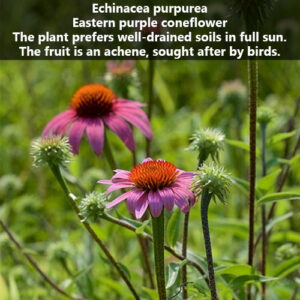Mulch and compost are two important components of any home garden. Both help the soil retain moisture, reduce weeds, control erosion, and improve the appearance of a garden. But which one is better for your garden? That depends on your needs and preferences. According to the Calgary Horticultural Society, Calgary home owners should insure their garden if free of heavy metals and contaminants if growing food. This Calgary Herald article suggests many homes in Calgary may have soil that is mostly clay or sandy. Compost and mulch serve different functions in the garden. Mulch is applied directly over the soil surface to prevent weeds or to protect it from erosion. It also helps retain moisture in dry conditions and soaks up rainfall to keep the soil moist longer. Read on to learn more about both compost and mulch, their pros and cons, and when to use each in your garden. A short-cut to all of this is to ask your landscape contractor about getting a high quality soil to replace or go on top your existing soil.
What is compost?
Compost is the product of decomposition. It’s a mixture of organic materials that have been broken down by microorganisms. The most common materials used to make compost are leaves, grass clippings, food scraps, and manure. Compost is a great natural fertilizer. It’s full of nutrients that help plants grow, including nitrogen, phosphorus, and potassium. Because it’s made from organic materials, compost also has some water-retention properties. It also contains beneficial microorganisms that help plants grow. However, it’s important to note that compost does not provide nutrients as fast as synthetic fertilizers.
What is mulch?
Mulch is a material that is placed on the soil surface to improve the soil’s health and appearance. Its main function is to control weeds, retain soil moisture, and prevent soil erosion. There are many types of mulch available, including bark, wood chips, compost, and synthetic materials. The type of mulch you choose depends on your gardening needs and preferences. Mulch is a great way to improve the appearance of your garden. It prevents weeds from sprouting and helps the soil retain moisture, which prevents the growth of weeds in your garden.
Which one is better for your garden?
Both mulch and compost are helpful in the garden. Compost is a great additive for soil, but mulch is more of a surface treatment. Both are excellent choices for gardeners who want to create attractive and healthy gardens. Compost is a great addition to the soil. It helps plants grow by providing nutrients and improving the soil. Compost also provides natural fertilizer and can be used to amend soil that is either too acidic or too alkaline. Mulch is best used as a surface treatment. It helps prevent weeds from growing, prevents soil erosion, and it can also help to retain moisture in the soil.
Comparing the benefits of compost and mulch
As we’ve seen, both compost and mulch are great tools to make your garden look better and healthier. Which one is better for your garden really depends on your needs and preferences as a gardener. Let’s take a look at the benefits of each so you can decide which one is right for you. Compost benefits your garden by providing nutrients, improving soil health, and helping plants to grow. Mulch benefits your garden by preventing weeds from growing, preventing soil erosion, and retaining moisture in the soil.
When to use mulch in your garden
If you’re looking for a quick and easy way to control weeds, mulch is a great choice for your garden. You can apply it to new and established gardens and different types are available for all types of gardens. To protect plant roots from frost, apply mulch in your garden when temperatures dip below 32 degrees Fahrenheit. This will help protect young plants from winter damage. When your soil is dry, apply mulch to help it retain moisture.
When to use compost in your garden
If you’re looking for a natural fertilizer, compost is the perfect choice. You can use it in vegetable gardens, flower gardens, and even in your yard. Compost can be used to amend neutral soil that is neither too acidic nor alkaline. Compost can also be used to amend soil that drains too quickly or too slowly. You can also use compost to enhance the soil’s ability to hold nutrients and water.
The final word
Hopefully, you now have a better idea of the difference between compost and mulch and when you should use each one in your garden. Compost is a great way to enhance the soil and provide your plants with nutrients. Mulch, on the other hand, is a great way to control weeds and prevent soil erosion. And don’t forget that compost and mulch are great for your wallet too!



Leave a Reply